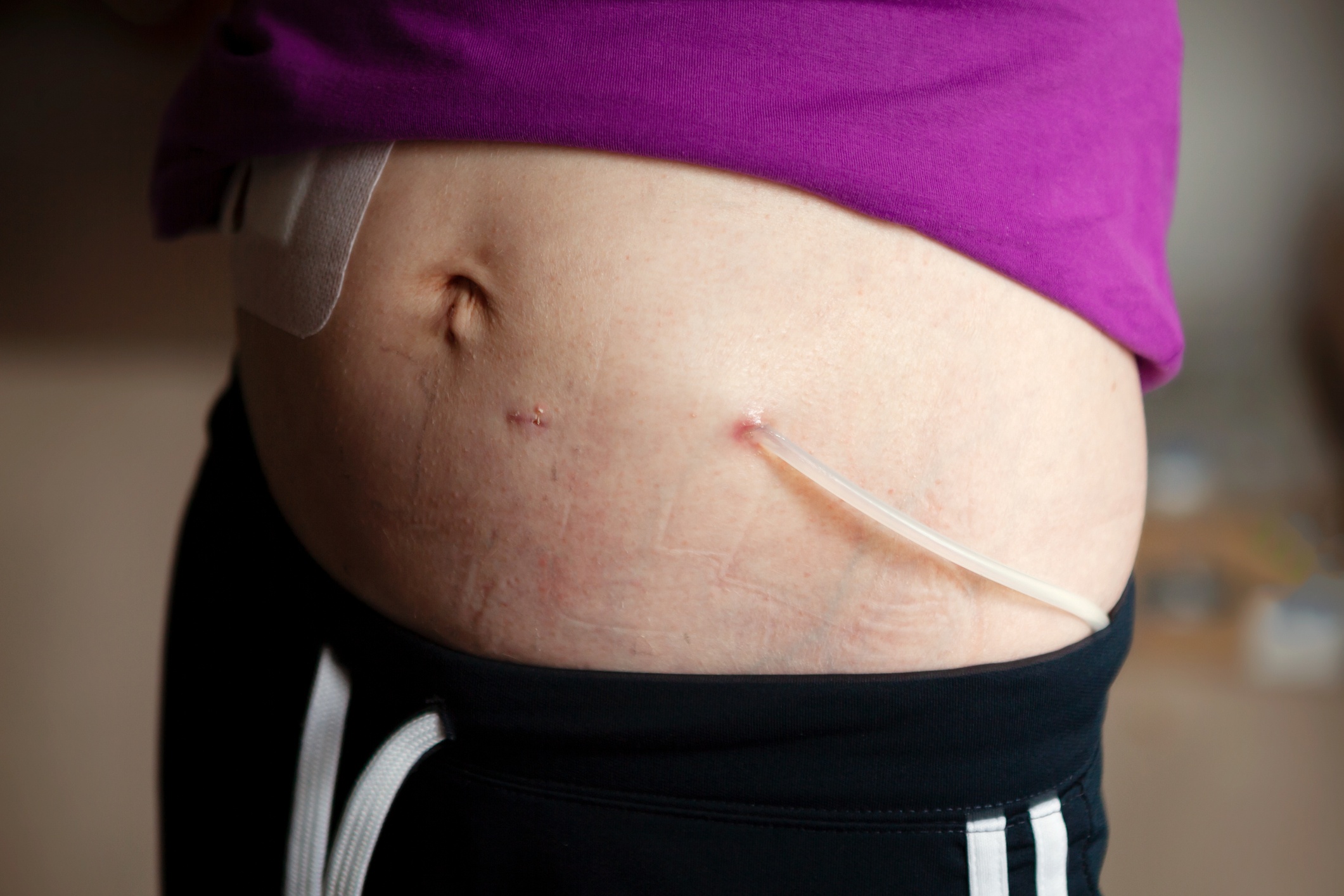
US rates of maternal severe morbidity and mortality are much higher than elsewhere in the world. Contributing significantly to maternal morbidity is acute kidney injury (AKI) during pregnancy. AKI during pregnancy is associated with 13 times greater odds of maternal mortality and a 30% to 60% greater risk of fetal mortality and morbidity. Pregnancy-related AKI is increasing and likely to continue trending upward. Incidence more than doubled, from 2.4 to 6.3 cases per 10,000, between 1999 and 2011. Meanwhile, Black patients are three times more likely than White patients to experience death from a pregnancy-related cause, which is likely an effect of structural racism.
A 2017 systematic review and meta-analysis of 845 pregnancies affected by AKI found that in about 2.4% of cases, pregnancy-related AKI resulted in end-stage kidney disease (ESKD). However, that number is likely too low, because it may not include instances of ESKD that occurred in the months to years following a pregnancy rather than developing immediately. Research is lacking on the longer-term outcomes of patients who develop pregnancy-related ESKD. A group of researchers led by Lauren M. Kucirka, MD, PhD, sought to fill this gap with a study published in JAMA Network Open.
The researchers pursued a threefold objective: to describe the demographic and clinical characteristics of patients who developed pregnancy-related ESKD in a national cohort; to look at ESKD outcomes, including survival and access to kidney transplantation, for patients with pregnancy-related ESKD compared with reproductive-aged women with other causes of ESKD; and to examine differences in predialysis care for patients with pregnancy-related ESKD.
The study examined a cohort of 183,640 birthing-aged women (ages 14-50 years) with incident ESKD between January 2000 and November 2020 from the US Renal Data System, a national registry of all patients with ESKD in the United States, and publicly available birth certificate data from the Centers for Disease Control and Prevention National Center for Health Statistics. Multivariable Cox proportional hazards and competing risk models were created to examine time to mortality, access to kidney transplant (joining the waiting list or receiving a live donor transplant), and the receipt of a transplant after joining the waiting list.
Researchers identified 341 patients with a pregnancy-related primary cause of ESKD (mean [SD] age, 30.2 [7.3] years). Black patients were overrepresented among those with pregnancy-related ESKD compared with the general US birthing population (31.9% vs 16.2%). The primary cause of kidney failure was determined via Centers for Medicare & Medicaid Services form 2728. A pregnancy-related primary cause of ESKD was identified if any of the following International Classification of Diseases, Ninth Revision, Clinical Modification or International Classification of Diseases, Tenth Revision, Clinical Modification diagnosis codes were reported per form 2728: 64620, 64620A, 64620a, 64620Z, 64620z, 6462Z, 6462z, or O904. Although pregnancy may have been a contributing cause in some cases, this study captures only patients for whom pregnancy was considered the primary cause of ESKD.
In adjusted analyses, patients with pregnancy-related ESKD had similar or lower hazards of mortality compared with those with glomerulonephritis or cystic kidney disease (adjusted hazard ratio [aHR], 0.96; 95% CI, 0.76-1.19), diabetes or hypertension (aHR, 0.49; 95% CI, 0.39-0.61), or other or unknown primary causes of ESKD (aHR, 0.60; 95% CI, 0.48-0.75). However, patients with pregnancy-related ESKD had significantly lower access to kidney transplant compared with those with other causes of ESKD, such as glomerulonephritis or cystic kidney disease (adjusted subhazard ratio [aSHR], 0.51; 95% CI, 0.43-0.66), diabetes or hypertension (aSHR, 0.81; 95% CI, 0.67-0.98), or other or unknown causes (aSHR, 0.82; 95% CI, 0.67-0.99). Those with pregnancy-related ESKD also were less likely to have nephrology care or have a graft or arteriovenous fistula placed before onset of ESKD (nephrology care: adjusted relative risk [aRR], 0.47; 95% CI, 0.40-0.56; graft or arteriovenous fistula placed: aRR, 0.31; 95% CI, 0.17-0.57).
The findings underline a significant lack of kidney transplant and predialysis access for those with pregnancy-related ESKD. Patients with pregnancy-related ESKD were significantly less likely to have nephrology care or be informed about kidney transplant before ESKD onset, and only 4% had a graft or fistula placed. Early access to nephrology care has been repeatedly shown to improve dialysis outcomes and likelihood of receiving a kidney transplant, so early referral to nephrology care and long-term follow-up is critical.
The study likely underestimated the burden of pregnancy-related ESKD because it only captured extreme cases in which the nephrologist felt that pregnancy was a primary contributing cause. Furthermore, the use of form 2728 for collecting data has limitations. Relying on form 2728 could lead to misclassification of the primary cause of ESKD. Previous research indicates that Black patients with ESKD may be more likely to be incorrectly categorized as having hypertension as the primary cause. Thus, results may underestimate the real racial disparity in pregnancy-related ESKD. Also, details about specific clinical events that led to a diagnosis of pregnancy-related ESKD are lacking. Processes for verifying the accuracy of details on form 2728 vary by center and clinician. In addition, comorbidities are reported on the medical evidence form at the time of ESKD onset, so researchers were unable to account for changes in comorbidity status or severity over time, which could have negatively impacted access to transplant.
In conclusion, the study’s findings draw attention to racial disparities in pregnancy-related AKI incidence, which increases Black patients’ odds for significant maternal morbidity, including progression to ESKD. The authors remarked, “In this study, those with pregnancy-related ESKD had reduced access to transplant and nephrology care, which could exacerbate existing disparities in a disproportionately Black population. Increased access to care could improve quality of life and health outcomes among these young adults with high potential for long-term survival.” They also noted that, although this study focused on patients with a pregnancy-related primary cause of ESKD, the results should inspire improvements in clinical care and future research for the larger population of patients with pregnancy-related AKI who are at significant risk for severe morbidity and mortality.
Source: JAMA Network Open







 © 2025 Mashup Media, LLC, a Formedics Property. All Rights Reserved.
© 2025 Mashup Media, LLC, a Formedics Property. All Rights Reserved.